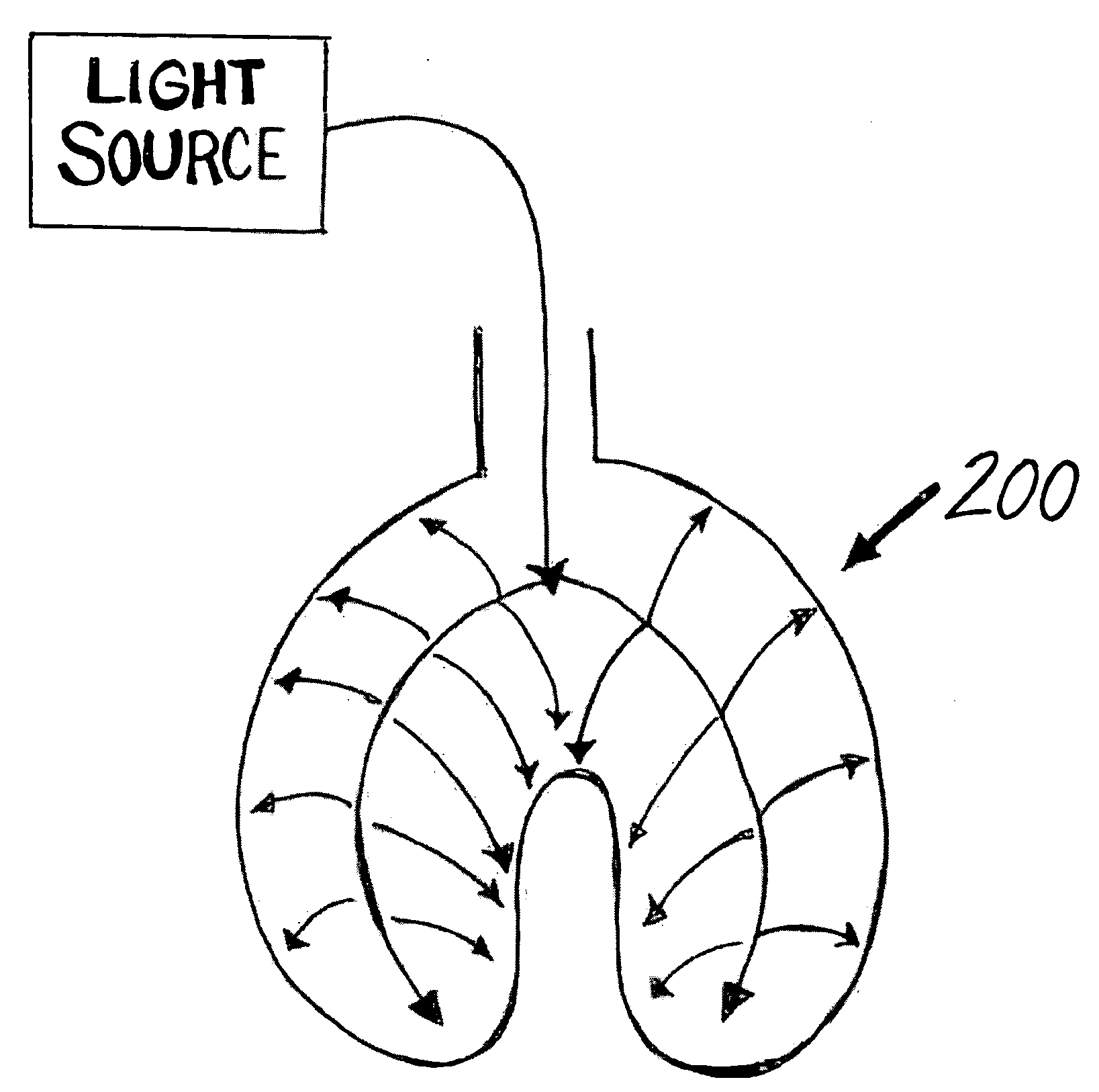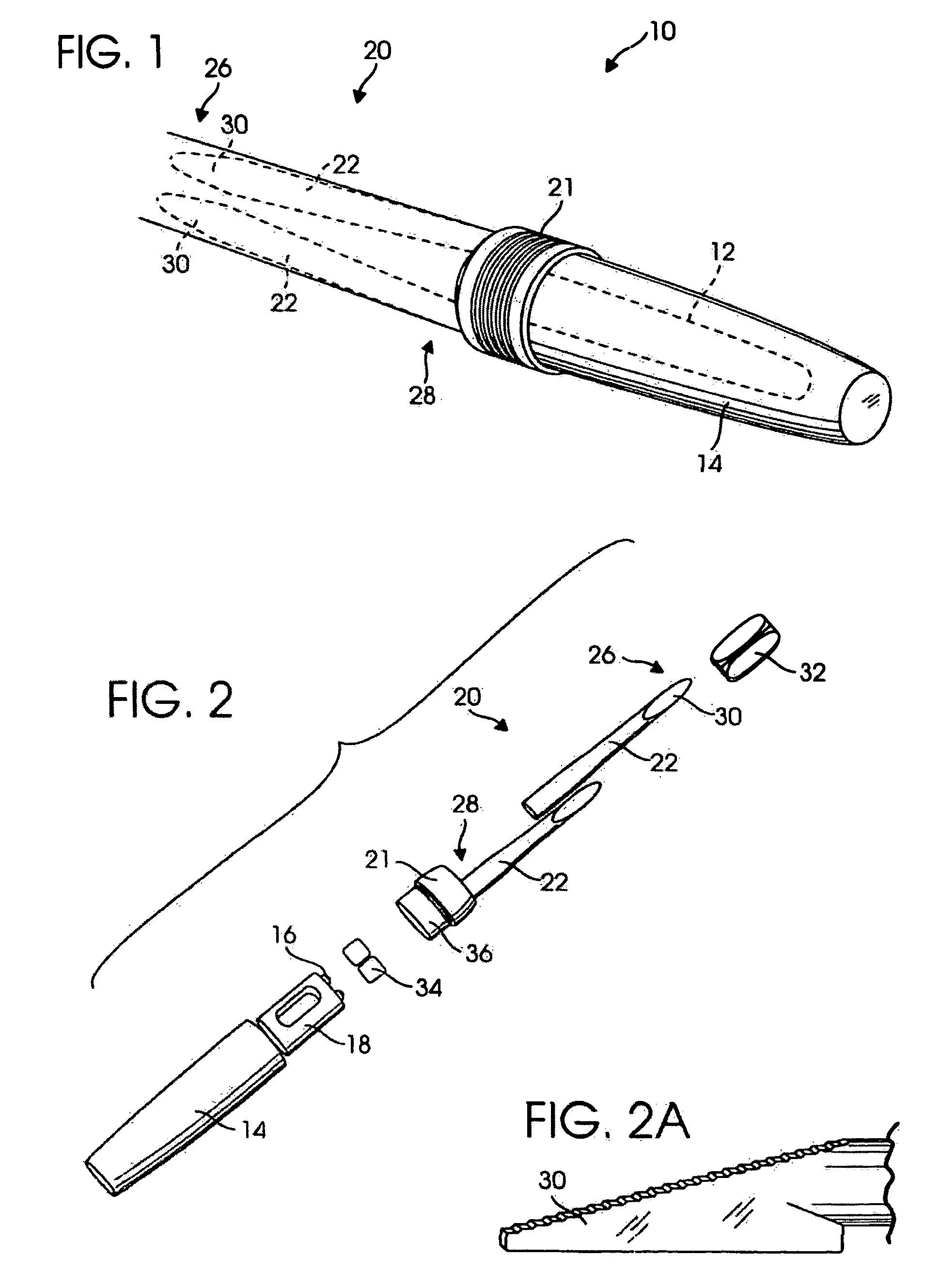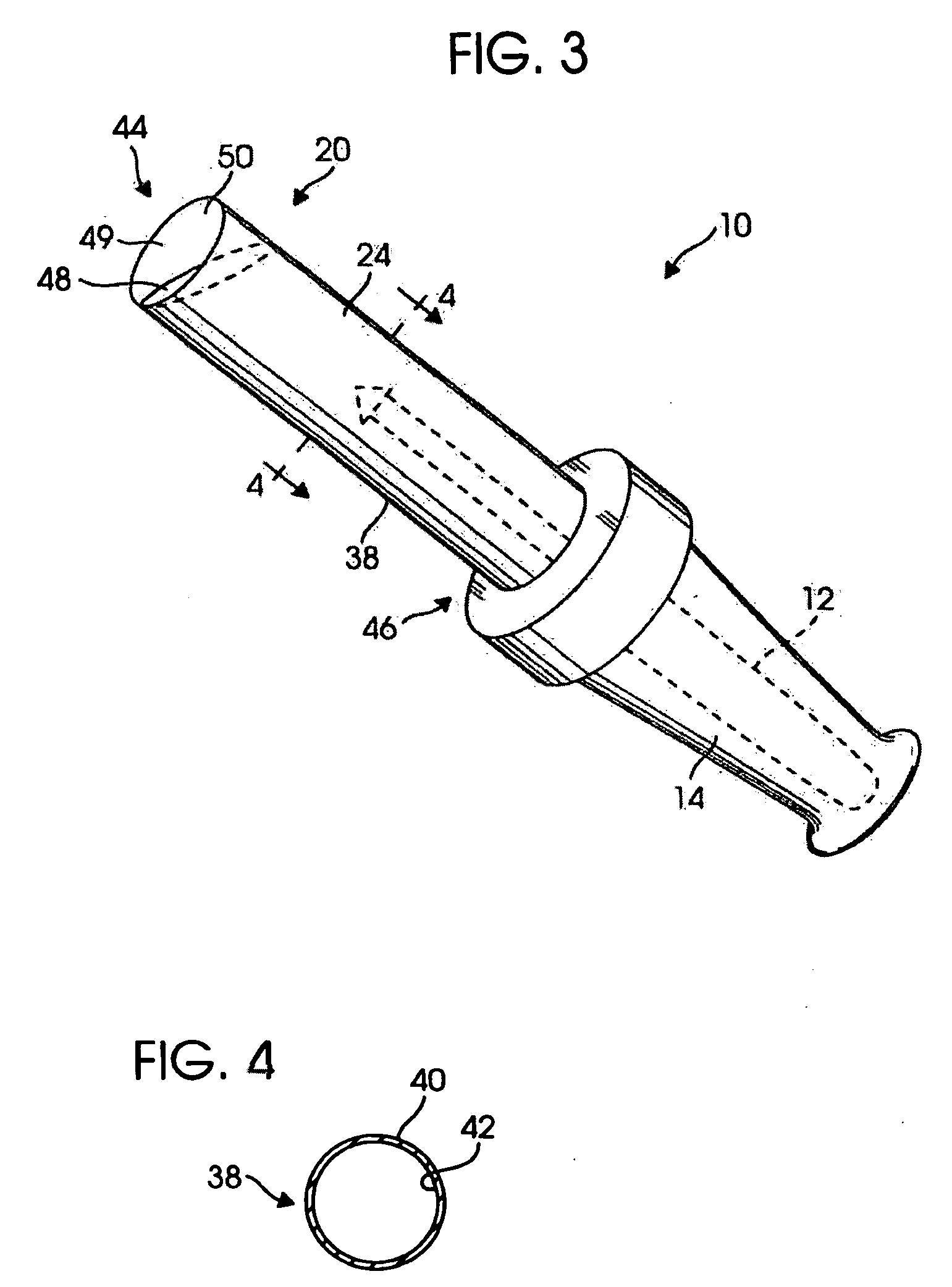Method and device for improving oral health
- Summary
- Abstract
- Description
- Claims
- Application Information
AI Technical Summary
Benefits of technology
Problems solved by technology
Method used
Image
Examples
example 1
This example demonstrates the results on oral health of a six-month parallel-design, blinded clinical evaluation of a one-time, in-office, light only, peroxide only, and combination peroxide-and-light procedure conducted in accordance with ADA guidelines.
Materials and Methods
The light used (BriteSmile 2000, BriteSmile, Walnut Creek, Calif.) was a stationary, short-arc gas plasma lamp emitting light in the blue-green (400-505 nanometers) portion of the color spectrum. The lamp simultaneously illuminated all the incisors. One of the researchers calibrated light irradiance daily using a standard light meter, set to a level of 130 to 160 mW / cm2 measured at a standard working distance of about 1.75 inches. Although irradiance was measured on only one portion of the emitter, all anterior teeth received approximately the same irradiance because the shape of the emitting surface approximated that of the dental arch. The peroxide gel contained about 15% hydrogen peroxide in a pH 6.5 hyd...
example 2
This study demonstrates the specificity of action of visible light on oral black-pigmented bacteria. It was hypothesized that oral black-pigmented bacterial of the Prevotella and Porphyromonas genera could be selectively inactivated by exciting their naturally synthesized endogenous porphyrins with broadband visible light (380-520 nm).
Methods
Pure cultures of Porphyromonas gingivalis, Porphyromonas melaninogenica, Prevotella nigrescens, and prevotella intermedia were exposed to 380-520 nm visible light from a high intensity light source (irradiance: 130 mW / cm2) for one, five, and ten minutes (the source optical spectrum is shown in FIG. 5).
After illumination, serial dilutions were prepared in brain heart infusion broth and 100 μl aliquots were spread over the surfaces of blood agar plates. Survival fractions were calculated by counting the colonies on the plates and dividing by the number of colonies from dark controls kept at room temperature for a period equal to irradiation...
example 3
The purpose of this study was to test whether the Prevotella and Porphyromonas genera can be selectively inactivated by exciting their naturally synthesized endogenous porphyrins with visible light (400-520 nm).
Methods
Suspensions of two oral black-pigmented species (P. gingivalis, P. intermedia) and S. constellatus were exposed to five different light sources. The light sources included: BriteSmile™ 2000 / 3000 380-520 nm (8 J / cm2 and 40 J / cm2), BriteSmile 3000 PB 430-520 nm (4.3 J / cm2 and 21.5 J / cm2), Red light 665 nm (42 J / cm2), Blue LED 420 nm (36 J / cm2), and Blue LED 400 nm (1.5 j / cm2 and 15 j / cm2).
Results
Table 3 provides the percent of killing of bacteria after exposure to several different light sources.
TABLE 3RedBlueBS (380-520 nm)BS (430-520 nm)(665 nm)(420 nm)Blue (400 nm)1 min.5 min.1 min.5 min.7 min.10 min.1 min.10 min.8 J / cm240 J / cm24.3 J / cm221.5 J / cm242 J / cm236 J / cm21.5 J / cm215 J / cm2P.84%99%72%100%6%1%17%11%gingivalis1%93%23%80%26%16%9%6%P.100%100%98%100%76%97%...
PUM
 Login to View More
Login to View More Abstract
Description
Claims
Application Information
 Login to View More
Login to View More - R&D
- Intellectual Property
- Life Sciences
- Materials
- Tech Scout
- Unparalleled Data Quality
- Higher Quality Content
- 60% Fewer Hallucinations
Browse by: Latest US Patents, China's latest patents, Technical Efficacy Thesaurus, Application Domain, Technology Topic, Popular Technical Reports.
© 2025 PatSnap. All rights reserved.Legal|Privacy policy|Modern Slavery Act Transparency Statement|Sitemap|About US| Contact US: help@patsnap.com



